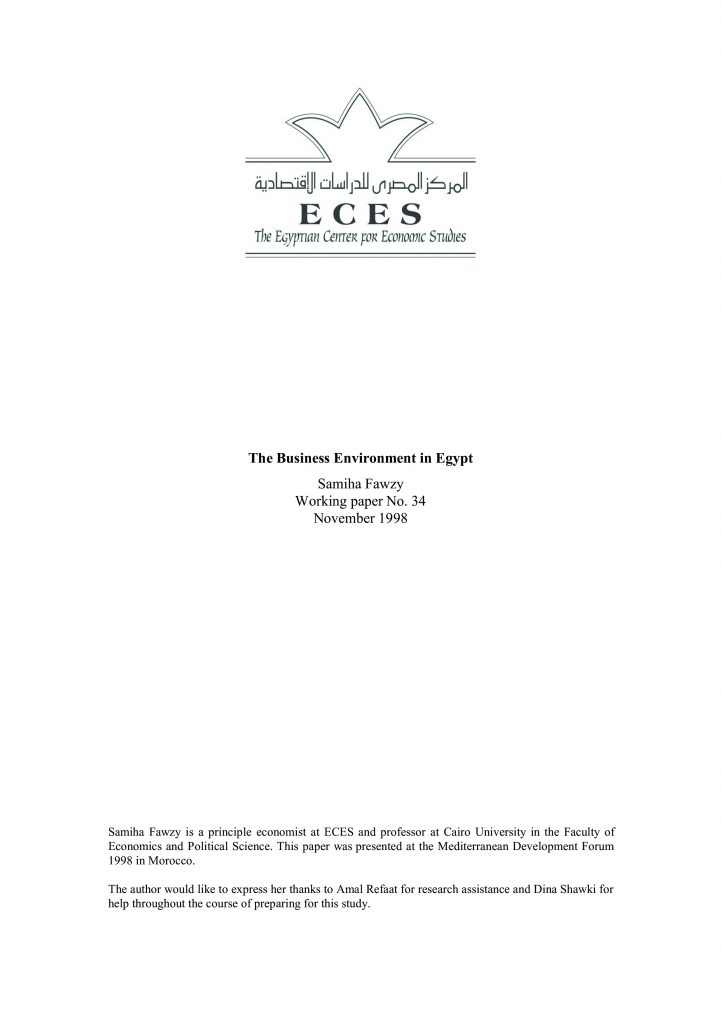Abstract:
After decades of state domination of economic activity, many governments around the world are increasingly relying on the private sector to foster economic growth. Starting from the premise that it takes a competitive business environment to ensure greater and more efficient private sector participation in economic growth, this paper assesses both the macro and institutional aspects of the business environment in Egypt.
Three conclusions were drawn from this study. First, despite the significant economic reforms undertaken recently by the Egyptian government, the private sector initiatives are still insufficient to drive Egypt’s growth and are far behind private sector contribution in other developing countries.
Although this unsatisfactory response could be a manifestation of the common ‘wait and see’ investors’ behavior accompanying most reform experiences, the study reveals that, other factors in both the macroeconomic and institutional environment explain this response. Second, while the stabilization reforms in Egypt have been judged successful by international standards, the structural component of the reform program is lagging behind. The slow pace of privatization, high tariff levels, young stock market, and underdeveloped insurance and pension systems hamper private sector efficiency. Third, the survey which was conducted in early 1998 by ECES shows that the institutional climate deprives private firms of the means to compete in a highly competitive global market.
According to the survey finding, the most critical elements that should be considered in private sector development are tax administration, the judicial system, support services, and education and vocational training in this order.
Finally, private sector development is only one element of Egypt’s growth. The emergence of a viable private sector also hinges on a major sustained effort to develop competent, capable government.

